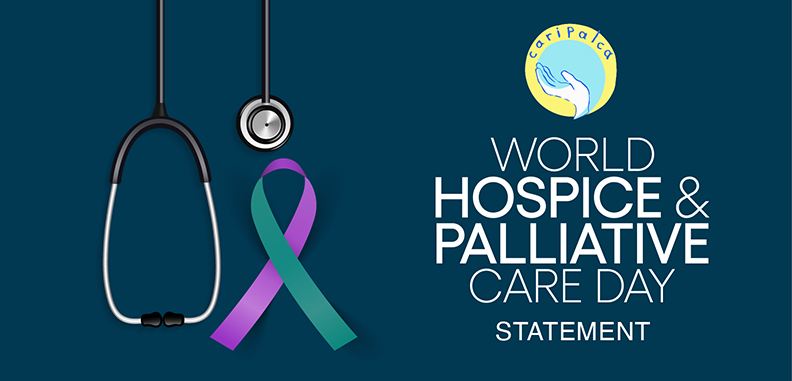It is with heavy hearts that we the members of the Caribbean Palliative Care Association (CARIPAlCA) write this statement to the leaders of our Caribbean region and by extension all global leaders. It seems at times, as human beings, we have the amazing capacity to turn our eyes, hearts, and hands away from those in our society who need us most. In this case, it is the 40 million people who (even as you read this statement) are walking through a valley of pain and suffering as they live with a life-threatening illness. These are the people in need of palliative care.
The reality is that while contemporary globalization with its increased flow of people, technology, and services has brought improvement in standards of living, the benefits of globalization have not sufficiently transformed the experience of chronic pain and dying. As leaders we ask you not to turn a blind eye to this aspect of our human development. We cannot truly develop as a region or transform our health care provision if we do not integrate palliative care into our health care systems.
Access to medicines for the relief of pain, including oral morphine, is still woefully inadequate in our territories (a situation recently magnified by the COVID-19 pandemic). Glaring and unacceptable inequities still exist within and between countries; with children, and persons with non-cancer diagnoses being amongst those most often left behind.
We ask you to acknowledge and accept your responsibility to fully implement the mandates enshrined in the concept of Universal Health Coverage and the WHA 2014 67.19 Resolution, (adopted by all Member States), to “strengthen palliative care as a component of
comprehensive care throughout the life course”. We remind you that Universal Health Care includes provision of health care services that address persons with palliative care needs (without precipitating financial hardship for the service user.)
We plead with you to engage fully with us in multisectoral dialogue and partnership to accelerate the provision of palliative care in the Caribbean. We cannot seriously address
Sustainable Development Goals 3 or 16 without working together to address the education, human resource, and medical technology deficits that prevent us from providing good health care for all including the provision of high-quality palliative care.
We call on you to set high ideals and goals and to be an example to rest of the world – so that as a region we can truly be “Lights arising from the west”; so that the leaders of all of our small island developing states can confidently say in 2030 – “We have seen, we have heard, we have acted and can boldly say –:We have left no one with palliative care needs behind!”
Natalie Greaves, Karen Cox, and Dingle Spence CARIPALCA Steering Committee


Recent Comments